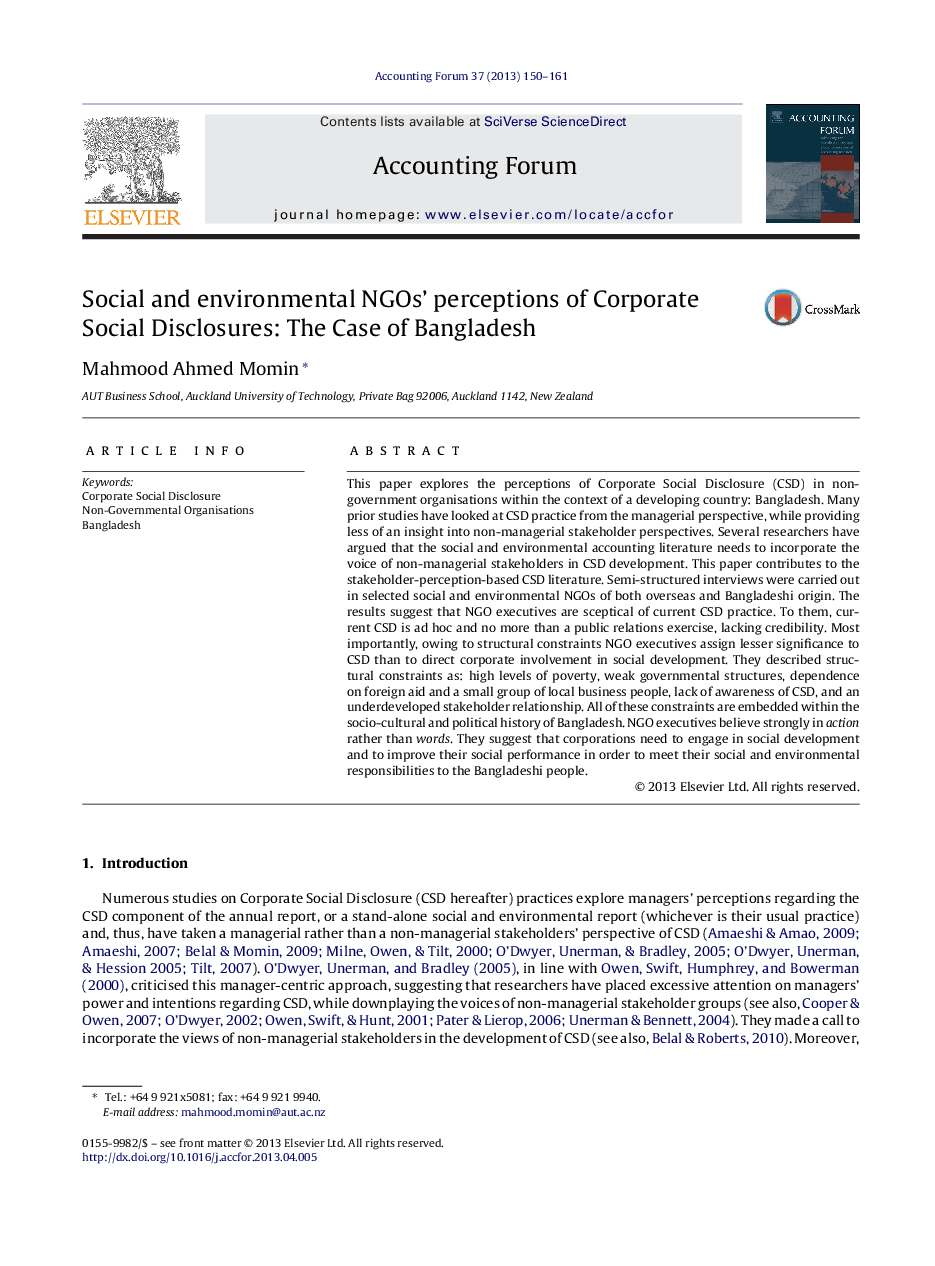| Article ID | Journal | Published Year | Pages | File Type |
|---|---|---|---|---|
| 1003805 | Accounting Forum | 2013 | 12 Pages |
This paper explores the perceptions of Corporate Social Disclosure (CSD) in non-government organisations within the context of a developing country: Bangladesh. Many prior studies have looked at CSD practice from the managerial perspective, while providing less of an insight into non-managerial stakeholder perspectives. Several researchers have argued that the social and environmental accounting literature needs to incorporate the voice of non-managerial stakeholders in CSD development. This paper contributes to the stakeholder-perception-based CSD literature. Semi-structured interviews were carried out in selected social and environmental NGOs of both overseas and Bangladeshi origin. The results suggest that NGO executives are sceptical of current CSD practice. To them, current CSD is ad hoc and no more than a public relations exercise, lacking credibility. Most importantly, owing to structural constraints NGO executives assign lesser significance to CSD than to direct corporate involvement in social development. They described structural constraints as: high levels of poverty, weak governmental structures, dependence on foreign aid and a small group of local business people, lack of awareness of CSD, and an underdeveloped stakeholder relationship. All of these constraints are embedded within the socio-cultural and political history of Bangladesh. NGO executives believe strongly in action rather than words. They suggest that corporations need to engage in social development and to improve their social performance in order to meet their social and environmental responsibilities to the Bangladeshi people.
